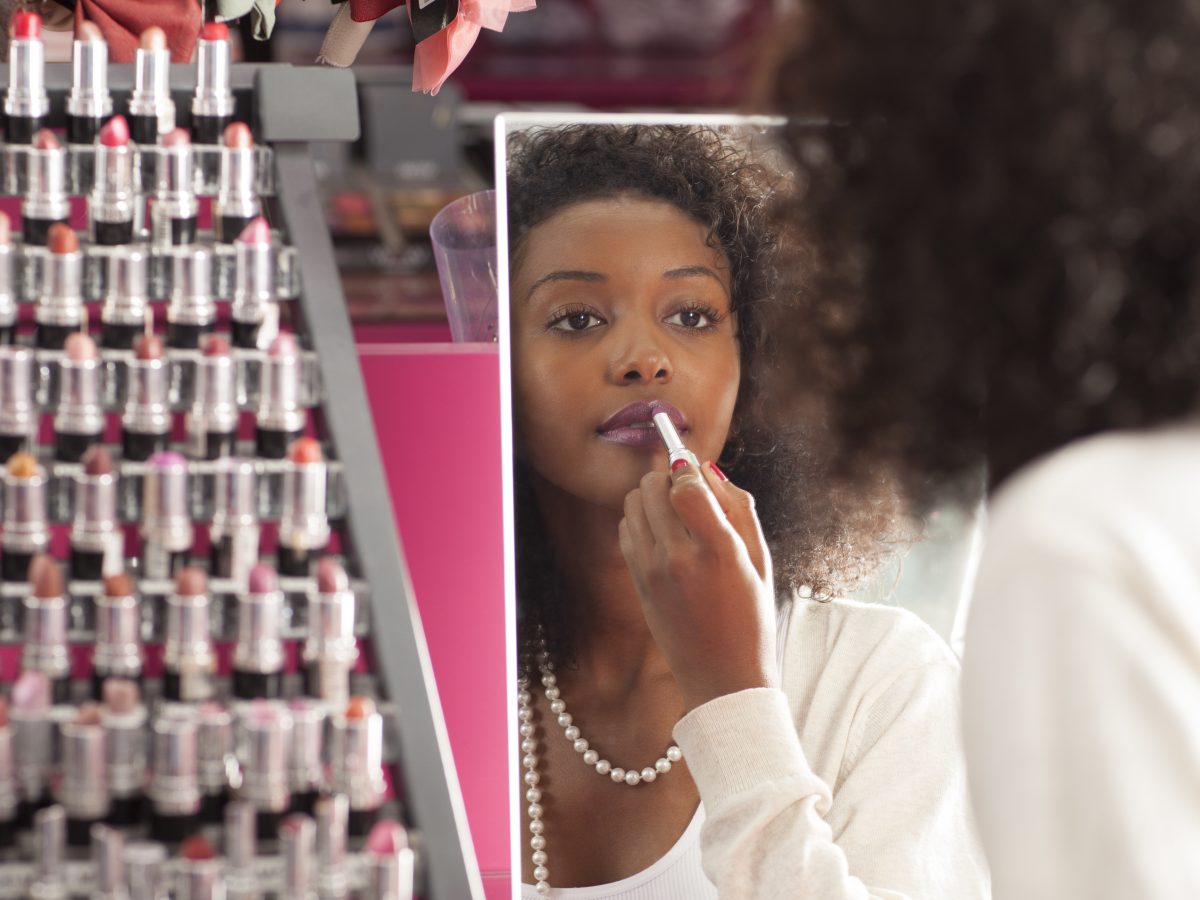
The beauty industry has experienced a cycle of trials and tribulations, especially in today’s society, where one significant issue affecting Black beauty is inflation. Recent societal changes have highlighted the highs and lows of inflation and how it impacts beauty-related costs within the community. This chain reaction of events has left many individuals struggling to keep up, as the prices for essential beauty maintenance continue to rise.
According to InsightAce Analytic, the Black Beauty Market is valued at $8.24 billion in 2023 and is predicted to reach $21.71 billion by 2031. GU spoke with several beauty professionals to gather their perspectives on how these changes have impacted their businesses and how they’ve managed to thrive despite the challenges they face.
Stephan Swearingen, also known as StepTheBarber, is a well-known professional barber in Atlanta who spoke about the challenges and benefits that inflation has brought to his business since he began cutting hair in 2005. He shared, “With inflation, it affects how much our supplies cost, and a lot of our supplies are overseas, so we pay for our materials because of inflation. We also have to deal with a slowdown in clientele flow because our clients are feeling the pinch too. You’re paying more for the items you need to work, but there is less work to be done.” In a report by Euromonitor, major beauty and personal care multinationals have reported that the cost of input and raw materials will keep increasing, further driving up the price of finished goods.
However, it’s also important to consider how rising inflation impacts young girls who aspire to start their own businesses. Charnae Dugan and her sister Karai Patrick shared their experiences with how inflation in the beauty industry affects their ability to purchase high-quality products, which are often quite expensive. This situation has led many professionals to raise their service prices.
Swearingen emphasized that some beauty professionals raise their prices to avoid burnout and to support their families. He explained, “Number one, it allows me to make good money and spend time with my family. As a barber, you don’t get retirement; there’s no 401(k) and no portfolio options. When my daughters go to school to further their education, how am I going to afford that without putting them in mountains of debt? I’m working. So, I have to cut a little less and make more to afford things in life. Either that or I have to stop cutting hair altogether or get a corporate job.”
Moreover, Swearingen acknowledged that his services are in high demand, thanks to the persistence of his clients. He stressed that many people in today’s beauty industry are not doing quality work, and if professionals known for their exceptional skills decided to leave the industry for jobs at UPS, AT&T, or State Farm, it would be a significant loss. He echoed the importance of supporting hairstylists while they are still available to serve their clients.
Shannon Hampton, a well-known beauty professional in Brooklyn, emphasized her commitment to maintaining beauty standards for the everyday working woman through her services. Despite the challenges, Shannon remains dedicated to thriving in the industry after years of experience without raising her hair service prices. She offered valuable advice for those seeking solace in the hair industry, stressing the importance of researching potential hairstylists and understanding how they treat and cater to their clients. “Share with another peer who does hair with quality. Being a gatekeeper these days actually hurts us more than it helps,” she told GU.
Challenges exist not only for salon hairstylists but also for celebrity hairstylists in the beauty industry. Tevin Washington, known as Cinderella’s Hair Stylist, shared his experiences in an interview with GU about the difficulties he has faced during his 14 years in the hair industry, particularly as a celebrity hairstylist for JT and many others. He discussed the challenges of being a Black man in the beauty industry, especially when working with celebrity clients for publications or editorial shoots. Often, when publications reach out to his celebrity clients, they have preferred stylists who do not resemble him and are not African American, even when glamorizing African American celebrities. This disconnect can create an uncomfortable environment for clients because the stylists may not be familiar with their specific needs, impacting how they look and feel during the shoot.
Washington stated, “A lot of times, the client has to fight to bring their own teams to ensure that we are seen. But I’m thankful to work with someone as talented as JT because she always advocates for me to be present at her major moments and editorial shoots, and I’m forever grateful for that.”
We also spoke with one of Kash Doll’s hairstylists, Daisy, whose hairstyles have gone viral. She pointed out that inflation has significantly impacted the hair industry. “The biggest challenge is that hair extension prices have risen so much that you either have to sell your products at a loss, barely making a profit, or you need to increase your prices,” she said. Daisy shared that her faith in God and dedication to her craft have been crucial to her success in the beauty industry.
Although prices may be higher than they used to be, proper representation in the hair industry is crucial for the success of beauty professionals who have devoted their lives to ensuring Black beauty receives the recognition it deserves. A report by Black Beauty Roster stated that Black consumers are 2.2 times more likely to trust Black beauty professionals and products. It is essential for us to come together and support one another during this challenging time of rising inflation.